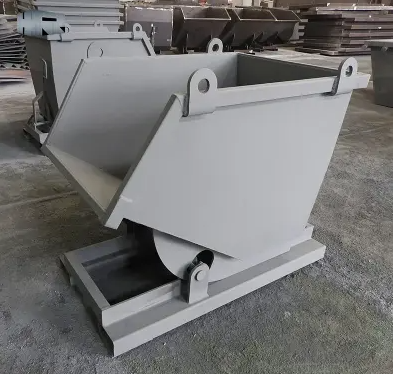
Self tipping bins are a type of waste container that is designed with a mechanism that allows it to tip and empty its contents without the need for manual handling. These bins are commonly used in commercial and industrial settings, as well as in public spaces such as parks and shopping centers. The use of self-tipping bins has had a significant impact on waste handling practices, making the process more efficient, hygienic, and environmentally friendly.
One of the key benefits of self-tipping bins is their ability to reduce manual handling of waste. Traditional waste containers require workers to physically lift and empty the bins, which can be time-consuming and labor-intensive. With self-tipping bins, this process is automated, reducing the risk of injury and improving overall efficiency. This is particularly important in environments where large quantities of waste are generated on a regular basis, such as in commercial or industrial facilities.
In addition to reducing manual handling, self-tipping bins also contribute to improved hygiene in waste handling. By eliminating the need for direct contact with waste, these bins help to prevent the spread of germs and bacteria. This is especially important in public spaces where multiple people may come into contact with the waste containers. Self-tipping bins also help to reduce odors and pests, as the contents are quickly and efficiently emptied, reducing the risk of attracting unwanted visitors such as rats or insects.
From an environmental perspective, self-tipping bins offer several advantages. By automating the waste handling process, these bins help to reduce the amount of energy and resources required for Waste Management. Additionally, self-tipping bins can be equipped with sensors and monitoring systems that allow for more precise tracking of waste volumes and recycling rates. This data can be used to optimize waste collection schedules and routes, further reducing the environmental impact of waste handling.
Overall, the impact of self-tipping bins on waste handling has been largely positive. These innovative containers have helped to streamline waste management processes, improve hygiene standards, and reduce the environmental footprint of waste handling operations. As the demand for more sustainable and efficient waste solutions continues to grow, self-tipping bins are likely to play an increasingly important role in shaping the future of waste management.




Komen
(0)